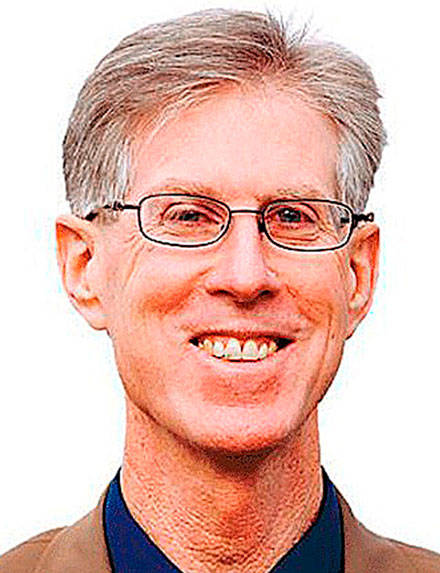As state lawmakers in Olympia enter the final turn of the 2020 session, a few big tussles stand between them and the finish line March 12.
Some they will sidestep. Others they really shouldn’t.
Where there’s an abundance of conflict and controversy, legislative leaders must calculate if there is adequate time to reach an agreement and enough votes to pass it before the gavel comes down.
Here are four policies stirring conversations and calculations:
Low carbon fuel standard
This won’t take long because the conversing is pretty much over and the arithmetic done. It seems kaput for this session — much to the chagrin of its champions, Gov. Jay Inslee, Democratic Rep. Joe Fitzgibbon of Burien and Sen. Reuven Carlyle of Seattle.
House Bill 1110, which would curb the amount of pollution-causing, climate-changing tailpipe emissions with a new clean fuel standard, is stuck in the Senate Transportation Committee. It stalled there in 2019, as well because the committee chairman is a foe of the legislation.
The reason is money, says Sen. Steve Hobbs, D-Lake Stevens. A clean fuels standard would lead to higher gas prices and fewer gas purchases as cost-conscious consumers find ways to curb their fuel consumption, he said. That would mean fewer dollars for the state transportation budget.
His answer is another multibillion-dollar transportation package, which would be funded in part with a fee on carbon emissions.
But for now, Hobbs is singing the same refrain he did a year ago.
“I don’t see how that bill comes out,” said Sen. Steve Hobbs, D-Lake Stevens. “The votes aren’t there to bring it out.”
Clean Air Rule
In this arena, the governor and those two Democratic lawmakers might achieve the milestone climate policy win they seek.
All session long they’ve tried to broaden the Department of Ecology’s authority under the state Clean Air Rule because the state Supreme Court issued a split decision in January that made things messy.
Justices affirmed the agency’s ability to regulate stationary sources, such as a factory, but invalidated its power to take on indirect sources, such as natural gas distributors and fuel suppliers.
If you’re going to really reduce carbon emissions, all those sources need regulating, environmentalists contend.
Fitzgibbon and Carlyle had bills granting the Ecology Department clear power to take on indirect emitters. Those are languishing. Opposition from moderate Democrats, especially in the Senate, has been largely viewed as the impediment.
Enter HB 2957. It is the product of negotiations involving Fitzgibbon, Carlyle, fellow Democrats Rep. June Robinson of Everett and Sen. Kevin Van De Wege of Sequim, and the governor’s office. It is Fitzgibbon’s original legislation plus new language intended to ease concerns and win over leery Democratic colleagues — as in Senate moderates.
“This authority bill is a meaningful but measured step forward on climate policy,” Carlyle said.
Hobbs isn’t a fan. He thinks it’s worse than the original. He can’t stop it. It won’t go through his committee — if it reaches the Senate at all.
On Tuesday, House Speaker Laurie Jinkins, D-Tacoma, said “there’s no point moving the bill” out of the House if it is not going to pass the Senate.
Data privacy
Once again, one of the most intriguing dramas revolves around a bill putting new rules in place regarding data privacy and facial recognition.
A bill sponsored by Carlyle lays out rules for the collection, sorting, use and sale of personal information. He’s combined elements of data privacy laws from Europe and California into legislation that he’s confident will protect the interests of Washington residents without hamstringing corporations that use such information.
But, as in 2019, enforcement is a sticking point with folks in the House.
Carlyle’s version, which passed the Senate on a 46-1 vote, relies on the Attorney General’s Office to enforce its provisions. House members want residents to be able to pursue legal action on their own, if they want.
Rep. Zack Hudgins, D-Tukwila, chairman of the House technology committee, is pushing to add “boilerplate language” from the state Consumer Protection Act that will allow for both avenues of enforcement. It’s the same language already found in law for other areas of commerce.
“Consumers in Washington state would have more opportunity to protect their rights against locksmiths and automotive repair shops than the tech companies this bill would regulate under the Senate proposal,” Hudgins wrote in an email to those tracking Senate Bill 6281.
Attorney General Bob Ferguson has said that, absent changes suggested by Hudgins, it would be a tough law for his office to enforce.
Boeing’s tax break
Who would have thought it would be this hard to raise taxes on the Boeing Co., especially after the company asked for it?
The aerospace giant is willing to give up the tax break — which is worth about $100 million in tax savings a year — in hopes of resolving an international trade dispute and to avert tariffs on airplanes and other Washington exports.
Some Democratic lawmakers are reluctant to say yes. They have conditions.
There are negotiations under way with Inslee on terms of a provision allowing the tax break to be reinstated. Some lawmakers don’t want it to be automatic, as presently envisioned in legislation.
They want to add language linking the restoration of the tax break with future creation and retention of jobs, a sort of “clawback” to the “snap-back.”
When asked if it can be worked out in regular session, Jinkins replied, “Yep.”
Contact The Herald (Everett) columnist Jerry Cornfield at 360-352-8623, jcornfield@herald net.com or on Twitter, @dospueblos.



